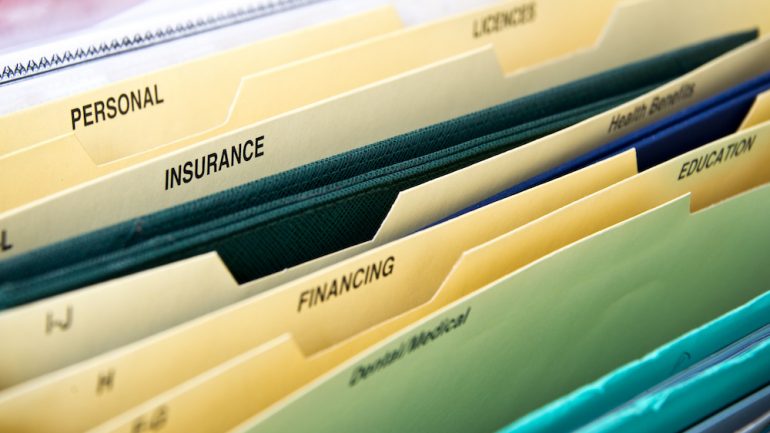You probably intend to organize your financial and other personal documents “when you get around to it,” but the task can seem overwhelming. Once done, however, organizing your financial affairs will give you and your loved ones security and peace of mind. Here’s our guide to organizing your financial life.
Important documents
A good place to start is with a will. A will allows you to:
- Set forth your wishes as to how you want your assets distributed in the event of your death.
- Name a guardian for your minor children.
- Choose an executor for your estate.
- Your next step in organizing your financial life should be a health care proxy and living will. These documents allow you to name someone you trust to make health care decisions for you when you can’t and express your wishes should you become medically incapacitated.
Make a list of financials
Once you’ve created those important documents, make a list of them and their location as well as other important financial information. Here’s the sort of information you should include on the document:
- All relevant information regarding your banking, investment and retirement accounts.
- A guide to the bills you pay online, with all information necessary for making payments. Include web addresses, usernames and passwords.
- A list of every financial asset you own. In addition to the accounts already mentioned, include certificates of deposit, real estate, hard assets such as precious metals and jewelry, valuable art and other collectibles, and the like. Don’t list small items with little value, such as clothing.
- The name and contact information of your financial adviser, attorney and accountant.
- The location of hard copy financial documents, including deeds and automobile titles.
- The names of your doctors and contact information.
- The insurance companies’ names and contact information with whom you have life, health, long-term care, and property coverage.
- A list of online e-mail accounts, social media and any merchant accounts along with usernames and passwords.
- The name and contact information of important people at your work. Don’t forget the Human Resources Director, who can help your loved ones contact and collect any insurance that may be available through your benefits plan.
- You can save this list on your computer, but it’s important to have a hard copy and possibly a backup on an external drive.
Instructions
Along with the list, set out in writing clear instructions of your desires for the end of your life, such as funeral plans. Although they may touch on similar topics, these instructions are separate from your will and will not have the force of law.
Organizing resources
You can find both online and hard copy resources to help you with organizing your financial life. Quicken and other financial software provide good organizing tools.
For hard copies, a simple three-ring binder with tabs for each of the categories mentioned above works well. Create a digital version on a flash drive. Keep both hard copies and digital drives locked away in a safe place, and let your spouse or other trusted family or friends know where the key is.
Related – When to Keep, When to Toss Those Important Documents


